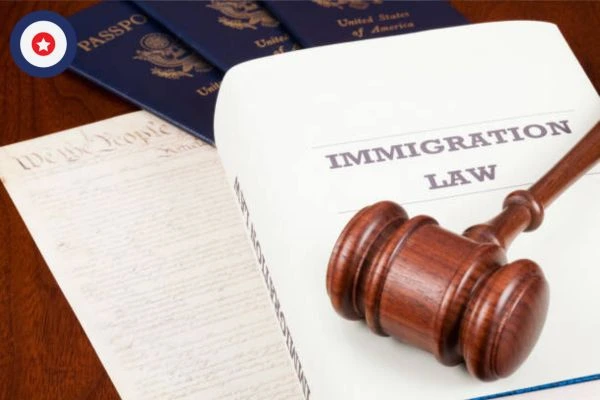
How to Pick the Right Bed Sheet For a Good Night’s Sleep?
14 July 2025
How to Choose the Right King-Size Bedding Sets?
15 July 2025Officially called the Permanent Resident Card, the U.S. Green Card is among the most sought-after immigration paperwork available worldwide. Getting legal permanent resident status in the United States still has great advantages despite changes in legislation and changing political landscape. A Green Card offers access to many of the rights enjoyed by citizens, allows immigrants to live and work continuously in the United States, and finally could result in naturalisation. However, for candidates, the procedure is still complicated, subtle, and sometimes intimidating. Immigration lawyers stress in 2025 the need for plan, paperwork, and preparation more than ever, particularly in view of changing laws and heightened scrutiny.
The Major Green Card Categories
Understanding the many qualifying categories is the first step in seeking a Green Card. Family-based immigration, employment-based immigration, asylum or refugee status, and diversity lottery choices are the most often occurring routes. Still the major path is family-based petitions, particularly for parents of U.S. citizens, spouses, and children. While skilled workers, professionals, and other labour categories come under EB-2 and EB-3, employment-based Green Cards are split into preference categories with priority workers such those with remarkable ability coming under EB-1. Every category has particular requirements and processing schedules. Immigration lawyers are noticing more and more in 2025 clients combining family, work, or humanitarian avenues to maximise their prospects. Seek help from an immigration lawyer Manchester for understanding detailed procedure
Legal Changes and Policy Shifts in 2025
U.S. immigration rules are dynamic rather than fixed. Every new government could view or enforce immigration laws how it sees fit. Many legal developments in 2025 will influence client advice given by lawyers. USCIS has given biometric validation, digital tracking, and employer compliance more of importance. While in certain circumstances speedier adjudication results from the growing use of technology in processing, it also reduces space for mistakes. Concurrently, revisions in public charge rules and the demand for more thorough financial data remain vital determinants in applications. Immigration lawyers keep updated with these developments and guide clients over the bureaucratic terrain by suggesting which records would be most useful under the present rules.
Importance of Choosing the Right Legal Strategy
Any Green Card application calls for a calculated strategy. Usually starting with a thorough consultation to assess the applicant’s eligibility under several criteria, immigration lawyers then For instance, someone with an H-1B visa might be eligible for an EB-2 if they have an advanced degree and a work offer in a sector that qualifies. If one meets the requirements for remarkable ability, others may want to file for an EB-1. Applications from families must take into account admission criteria, relationship documentation, and any exemptions. More candidates in 2025 are also looking at self-petitioning choices such as the National Interest Waiver (NIW) to free themselves from reliance on corporate support. To maximise the possibilities of approval, an expert attorney can assist balance the advantages and hazards of every path.
Documentation: Building a Strong Petition File
Immigration is a paperwork-intensive procedure, and in 2025 documentation will be even more important. USCIS officials judge cases mostly on the strength and organisation of supporting documentation. Lawyers advise building thorough proof of ties for family-based petitions including pictures, shared financial documents, affidavits, and personal letters. Employment-based candidates have to make sure their qualifications, job experience, and labour certifications (if needed) are completely recorded and translated. Immigration lawyers often underline the need for uniformity among paperwork. Any difference in forms, tax records, or identity documentation might set up requests for evidence (RFEs) or perhaps rejections. A well-organised petition shows initiative and sincerity, which could affect how authorities see a matter.
Preparing for the Adjustment of Status or Consular Process
Once the petition is authorised, candidates either undergo consular procedures overseas or change their status if they are already in the United States. Adjustment of Status (AOS) entails completing Form I-485, showing up for an interview and biometric appointment. For family-based candidates especially, USCIS interviews will remain a crucial stage in 2025. Legal advice guarantees clients are ready for the enquiries, conducts simulated interviews, and provides guidance on how to answer honestly and succinctly. Applications for consular processing must negotiate embassy appointments, medical tests, and sometimes delayed administrative processing. By ensuring proper and timely forms sent to the National Visa Centre, immigration lawyers help to lower the possibility of delays or denials during the overseas interview.
Responding to Requests for Evidence (RFEs) and Denials
Many applicants still get RFEs or Notices of Intent to Deny (NOIDs), even with great preparation. These alerts in 2025 may be more focused and relate to stricter proof-reading requirements or missing paperwork. Crafting convincing answers, providing the needed data, and creating a persuasive narrative that solves USCIS’s issues depends on immigration lawyers, who are quite important. When there are clear denials, lawyers could advise filing with further evidence or appealing to the Administrative Appeals Office. By careful legal reasoning and document preparation, a proactive, seasoned legal team may frequently transform an early setback into a winning result.
Tips for Employment-Based Green Cards in 2025
The terrain of employment-based immigration keeps changing. Employers are sponsoring more foreign nationals for Green Cards as demand for STEM specialists and healthcare workers stays strong. Still, the PERM labour certification procedure will remain extremely technical and time-sensitive in 2025. Immigration attorneys help companies create job ads, run recruiting campaigns, and guarantee Department of Labour rules are followed. Timing or documentation errors might invalidate a PERM application. Lawyers counsel employees on keeping good contact with their companies all through the process and on becoming ready for possible audits. Those in qualified categories might also seek concurrent filing or premium processing to speed delays when allowed.
Family-Based Green Cards: Avoiding Common Pitfalls
Still one of the most often used and emotionally charged routes to a Green Card is family-based immigration. Particularly American citizen spouses sometimes believe the procedure will be easy. But immigration attorneys regularly find rejections resulting from inadequate financial affidavits, form mistakes, or lack of connection proof. USCIS agents will be taught in 2025 to examine marriage-based applications for evidence of fraud. Legal experts help couples create affidavits, arrange timings and photos, and make sure financial sponsors follow poverty rules. Lawyers counsel if a waiver is required in circumstances involving prior marriages, criminal backgrounds, or immigration offences and how to make a strong case for admission.
Green Card Interviews: What to Expect in 2025
One of the most important and nerve-wracking stages of the immigration process still is the Green Card interview. This interview can decide the course of the matter whether it takes place in a U.S. embassy or a local USCIS office. Interviews in 2025 will progressively focus on confirming the validity of the employment or the authenticity of the relationship. Candidates should be ready for enquiries about personal history, chronology, past immigration background, and travel habits. Lawyers get their clients ready by practicing standard questions, closely studying the petition, and making sure all the paperwork is provided to the interview. A candidate who is ready is more believable, confident, and likely to succeed.
Dealing with Delays and Backlogs
In 2025, processing delays remain a severe obstacle especially in nations where U.S. immigration is highly sought for. Although USCIS has used technology to expedite certain cases, among others backlogs in visa availability and country caps still present challenges for applicants from India, China, and the Philippines. Immigration attorneys assist clients in understanding priority dates, negotiating the visa bulletin, and investigating alternatives like filing under other categories or changing from nonimmigrant status. They could also counsel customers to use travel authorisations and work licenses granted during the waiting time. Strategic planning is absolutely essential to prevent legal status or work authorisation lapses.
Avoiding Fraud and Misinformation
Misinformation has also proliferated as the Green Card application gets increasingly complicated. Advice is sometimes lacking or false from online forums, social media, and unlicensed immigration experts. Immigration attorneys will keep alerting candidates against succumbing to shortcuts or frauds in 2025 Using “ghost preparers,” filing false documentation, or distorting facts might have major repercussions including lifetime prohibitions from entering the United States. Lawyers underline in all files the need for openness and moral behaviour. Honesty builds a trustworthy attorney-client connection that finally results in improved results and less legal problems.
Conclusion
For immigrants, the Green Card application still represents a huge turn-around in their lives. It stands for not just the possibility to live and work in the United States but also a road towards stability, opportunity, and finally citizenship. The legal environment around immigration will be more controlled and watched over in 2025 than it is now. From selecting the correct category and gathering data to negotiating interviews and avoiding delays, the procedure is rife with technical criteria and possible hazards. Immigration lawyers are strategic partners on the road to permanent status. Candidates can have a great advantage from their experience, vision, and current understanding of changing policies.




